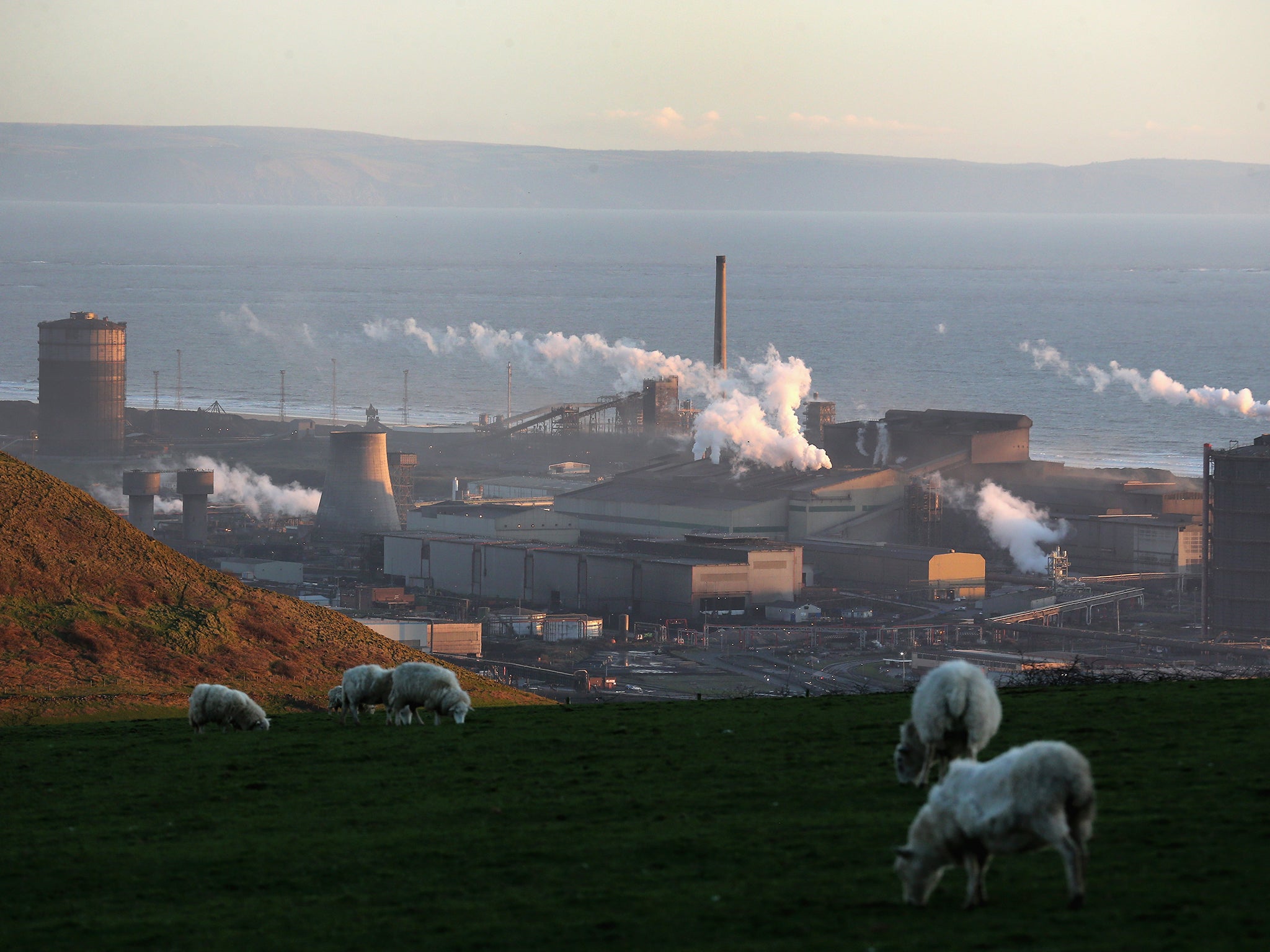Steel's crisis cannot and should not be used as an argument in the EU referendum
We know that it is worth spending public money on retraining and regeneration

The travails of the British steel industry are invoked in support of two mistaken arguments. One is that we should leave the European Union because its rules on state aids prevent the British Government from rescuing the Port Talbot works. The other is that the Government should nationalise the industry because it is a vital national interest.
The first is mistaken because it would do no good to subsidise the steel industry if it is uneconomic. National subsidies may be against EU law, but there is a more fundamental objection to them: they are a bad idea. They would waste taxpayers’ money and they would do nothing, except in the shortest of terms, to make life better for steel workers and their families.
The second is unfounded because, if steel is uneconomic, nationalisation would not magically make it viable. There might be a case for temporary public ownership while buyers can be found or transitional arrangements put in place, but there is no convincing case for nationalisation in itself. Even if one did regard public ownership as a desirable form of economic organisation, a proposition of which this newspaper has always been sceptical, it would be discredited if it were used only to bail out loss-making industries.
If, that is, steel is uneconomic. And that is the hard question. Yes, energy costs may be higher in the UK than in some other European countries – and some adjustment of green taxes on energy would be permissible under EU rules. But it is not the fundamental problem. If the Chinese are dumping steel on world markets – that is, selling it below cost price in order to try to force competitors out of business – there would be a case for temporary protection of European markets, and the EU could impose tariffs on imports from China. However, dumping is hard to prove and the evidence for it in this case is weak. The world steel market is over-supplied, and it is also dominated by China, but it does not appear to be over-supplied as an attempt by China to increase its dominance.
The question then is whether the glut in steel is temporary, and to what extent Britain ought, as a nation, to hedge against a bounce-back in the steel price because the industry is perceived to be of strategic importance. Generally, these are questions out of which governments should stay. To the extent that transitional support is justified to help Britain’s steel towns adjust to the loss of jobs in the industry anyway, it makes sense to delay the effect of market forces, and world steel prices might go up while that is happening. But it makes no sense to try to resist the laws of supply and demand in the long run.
We understand these things better now in this country. The closure of the coal mining industry was handled badly in the 1980s: the social fabric of many towns was ripped apart at great and lasting cost, financially and personally. Previous phases of shrinkage in the steel industry have not been easy, but they have been managed more humanely. We know that it is worth spending public money on retraining and regeneration.
It might have been worth recalling Parliament had David Cameron appeared reluctant to help to find buyers for parts of the Tata company here, or to provide generous transitional help to those communities that need it. But the Government seems to understand its obligations well enough. A recalled session of Parliament would probably have provided a platform only for misguided anti-EU propaganda, or for the nostrums of old-left nationalisation, neither of which would have helped steel workers or their families.
Join our commenting forum
Join thought-provoking conversations, follow other Independent readers and see their replies
Comments
Bookmark popover
Removed from bookmarks